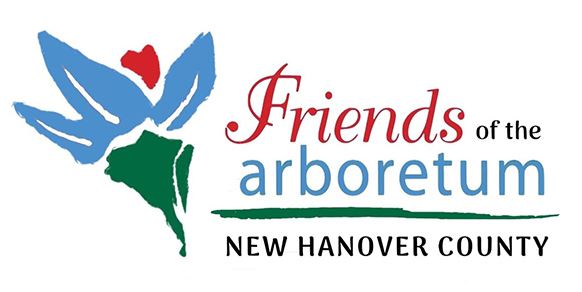
Turning Lifeless Commercial Landscapes and Non-Native Gardens into Rich and Vibrant Ecosystems
We can do this! As a community, we can commit
to redefining “nature” as welcome and beautiful,
rather than something we must dominate
and keep at bay.
The Alliance for Cape Fear Trees and NHC Cooperative Extension are launching Nature at Work to shift our urban landscaping from a reliance on grass and invasives to a more sustainable model of landscaping that relies on native plants and trees.
Our modern delight in the “perfect lawn” has robbed our native pollinators of adequate food and habitat, while requiring use of pesticides and irrigation that diminish our biodiversity and degrade our coastal watershed.
Nature at Work is intentionally broad in scope, encouraging everyone to reconsider how they manage their landscapes: business owners, developers, HOAs, government, schools, neighborhoods and communities of faith – each reside on natural spaces that, without this shift, will continue to welcome fewer pollinators, diminish biodiversity and degrade our region’s sustainability.
Even container gardens and gardeners can contribute
with more thoughtful plant choices.
In fact, check out this comprehensive guide produced by the Coastal Landscape Initiative on creating eco-friendly container gardens.
Nature at Work introduces our community to the benefits of native trees and plants and provides resources to support a transition to more sustainable landscaping practices.
Why Natives?
Native plants and trees are those that occur naturally in our region and serve as the foundation of our coastal ecosystem. Our native plants and trees have evolved in tandem with local insects on which birds depend for food. Indeed, there is a mutually dependent relationship between plants, insects and birds that is interrupted with non-native and invasive species.
Not all plants and trees are equal.
A live oak, for example, can sustain thousands (yes!)
of species, including insects, fungi, caterpillars,
birds and mammals. No other species can claim such
astounding impact on biodiversity. But even oaks
must be carefully sourced to assure they are a native variety.
Simply put: for nature-conscious urban design, plant choice matters. By continuing to design our landscapes to meet aesthetic demands, we are overlooking this real and urgent fact: landscapes must meet ecological demands. Plants that are native to our region are nearly always far better at performing their ecological roles than plants which come from somewhere else.
| Doug Tallamy: “In the past, we have asked one thing of our gardens: that they be pretty. Now they have to support life, sequester carbon, feed pollinators and manage water.” |
Let’s Learn Together: Join our community read of Nature’s Best Hope
Nature at Work will officially launch with a community read of Nature’s Best Hope, Dr. Doug Tallamy’s seminal work calling for a grassroots commitment to restoring biodiversity through our individual landscaping practices.
Nature’s Best Hope and its companion version, written for middle-school age readers, are available at Pomegranate Books, Old Books on Front and Barnes & Noble, and at the New Hanover County Public Library.
The library also has e-books and eAudio versions available for download through the Libby app, and Spotify and Audible offer both versions for subscribers.



